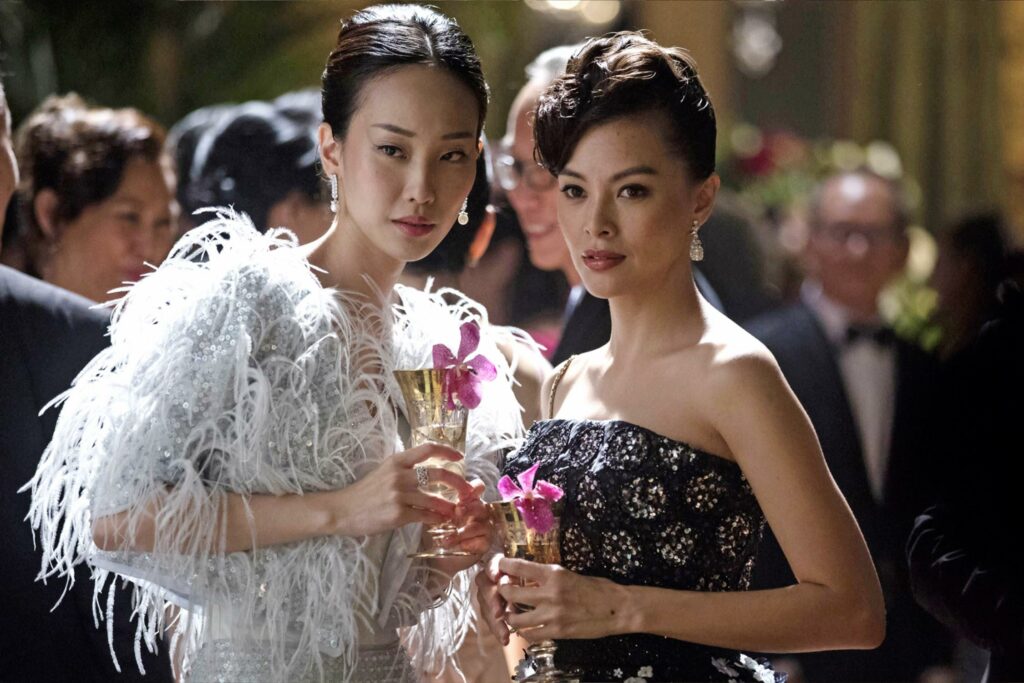The first all-Asian cast in Hollywood since The Joy Luck Club (1993) has been getting a lot of buzz in the media — and rightfully so — for being a milestone in on-screen representation, but we should be careful to qualify the milestone we are celebrating.
Crazy Rich Asians, while a fun rom-com, certainly isn’t perfect in its representation, and it’s important to flag up its shortcomings without detracting from its successes.
The issues are succinctly summed up in the title itself, so let’s break it down:
Crazy Rich
The premise of the film is, of course, that Chinese-American Rachel Chu (Constance Wu)’s boyfriend Nick (Henry Golding) belongs to the wealthiest family in Singapore, and she must win them over on their visit there.
The Young family’s wealth is their defining characteristic. Rachel, raised in America by a poor single mother, isn’t Henry’s mother (Michelle Yeoh)’s idea of a perfect match for her perfect son. The audience knows that Rachel is perfect for him; it’s just up to her to convince his mother that she’s suitable — a pretty standard rom-com trope. However, what’s missing from the film is the crazy rich Young family proving themselves to the audience.

Michelle Yeoh’s icy performance is spectacular, and the climactic scene between her and Rachel is emotive indeed, but the happy ending comes when Rachel is accepted into the crazy rich family with their crazy rich lifestyle… and that’s the end of that.
Throughout the film, it’s made clear that there’s a difference between classy-rich and tacky-rich. The bachelor and bachelorette parties are tacky and distasteful — even Rachel’s friend Peik Lin (Awkwafina)’s house and family are shown to be nouveau-riche, and therefore subject to be laughed at. The Young family, however, though their parties are extravagant to the extreme, are portrayed as the sort of rich it’s admirable to be. The sort of rich that would be a happy ending.
One of Henry’s cousins, Astrid (Gemma Chan) undergoes a subplot with the most ludicrous of climaxes. Her extreme wealth is tempered when she is introduced by showing that she is kind to children – just to give the audience something to root for in this woman who seemingly has the perfect life. She hides her many extravagant purchases from her tech start-up husband so as not to make him feel inadequate — already, alarm bells should be ringing.
Long story short, she finds out he’s cheating on her, and makes the decision to leave him. That’s all fair enough, but her moment of empowerment comes when she fishes out some million dollar earrings from where she’d hidden them, and defiantly puts them on. She’s rich, goddammit, and she shouldn’t have to hide that. That’s the message of this empowered moment.
Now, I don’t know about you, but that seems pretty crazy to me.
Asians
The all-Asian cast is something empowering for East-Asian diaspora in the West, but the setting for this particular story is Singapore — a multi-racial state, with a significant population of Indian and native Malay people who are racially discriminated against by the Chinese majority.
Indian-Singaporean anti-racism activist Sangeetha Thanapal explains the importance of this context to the New York Times:
“Part of the way that this movie is being sold to everyone is as this big win for diversity, as this representative juggernaut, as this great Asian hope. I think that’s really problematic because if you’re going to sell yourself as that, then you bloody better actually have actual representation [of Singaporean minorities].”
None of this detracts from the significance of this film in in the context of East-Asian representation in Hollywood — the film has still proven that an all Asian cast can smash the box-office, the cast themselves will doubtless get more job opportunities because of it, it will still change minds and hearts about what and who Asians can be, and help diaspora communities feel represented.
But global context is important. The only dark skinned faces seen in the film are Astrid’s maids and the Indian guards, sickeningly dressed in colonial costume. None of these people speak, or have any impact on the story — they are accessories, scenery, anything but people.
While this film made leaps for East Asian representation, it threw other minorities under the bus along the way. Here’s to hoping that by speaking out about it, the confirmed sequel won’t make the same mistakes.
Crazy Rich Asians arrives in UK cinemas on September 14th.
